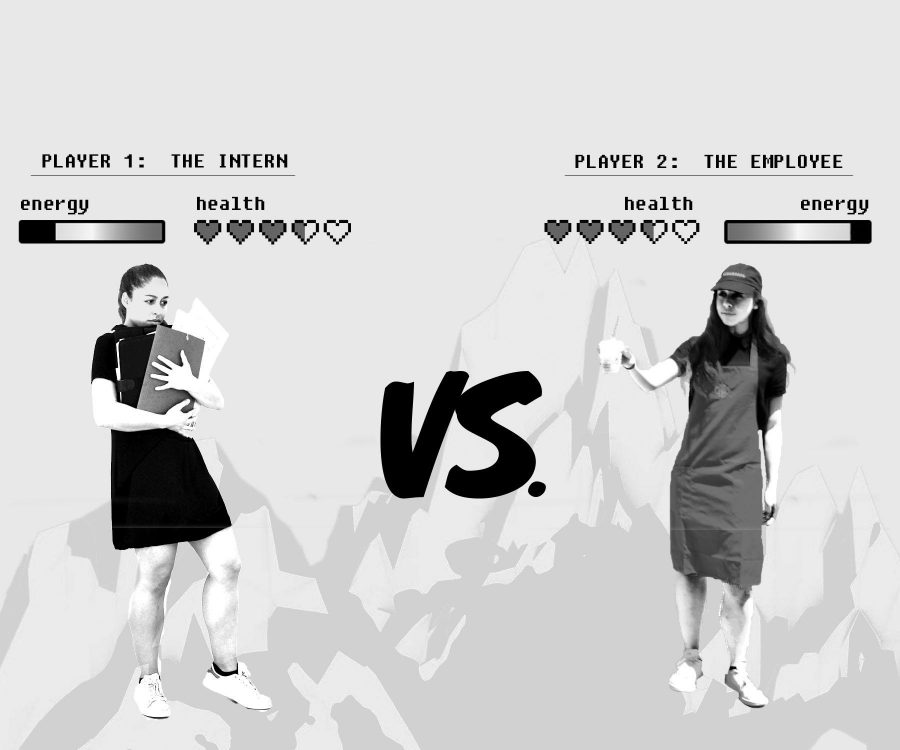While some of her classmates spent their summers doing STEM cell research at the University of Southern California or getting coffee for editors of NYLON magazine, Maddy Ulloa ’17 rang up customers and counted inventory at American Apparel.
“I gained a lot of communications skills from my job last summer,” Ulloa said. “I also gained knowledge about dealing with bosses and having to meet deadlines, as well as being held responsible by your co-workers and your superiors.”
Although many students see prestigious internships as their ticket into a top college, some students like Ulloa see the value in getting real-world experience and getting paid rather than simply running errands like many unpaid interns do.
“I helped with a chemistry research project last year as a part of an internship at UCLA,” Wiesenthal said. “I learned a lot, and it was a great experience, but honestly I am just really interested in joining the workforce and starting to make my own money this summer.”
Upper school dean Jamie Chan also thinks that the benefits of working a real job should not be overlooked by students wanting to pad their resumes.
“I think getting job experience, be it at Starbucks, McDonald’s or in retail, can be beneficial because I think many students don’t have that experience nowadays,” Chan said. “Getting a summer job isn’t something that a lot of our students think about, so it can look good to colleges because it shows that you’ve gotten out into the real world and interacted with people.”
However, Chan said it also can be beneficial to show a college that you have some background in the field you’re interested in. These internships also allow students to see what it’s actually like to work in the profession they’re thinking about and make a more educated decision when picking a college major.
Many students find internships in their preferred area of study through the school. HW Works administrator Zaakira Daniels ’10 said that she’s had students come to her looking for internships in a variety of fields including technical theater, foster care, business and marketing.
“I think that as long as what you’re doing over the summer is helping you to become the person you want to be, there’s a benefit to it,” Daniels said. “I like jobs, because you’re getting professional training while making money at the same time. Unfortunately, not a lot of internships for high school students offer monetary compensation.”
Combining passion for a summer job with the ability to actually make money for their work is a difficult task for most students, but those who have done so say it is a great experience.
“Last summer I worked at L’Agence, which is a fashion company,” Lauren Genender ’17 said. “Most of what I was doing was work that is typical of an internship, like packaging boxes and writing notes, but I was also able to work closely with the design team, which was amazing. I was paid a very small amount, so getting paid was just an extra bonus, and what I truly enjoyed about the job was getting to experience the business side of fashion.”
Due to the pressure on students to spend their summers doing activities that will bolster their qualifications on a resume, many are thinking mostly of what colleges will think of their summer work.
For some students, appealing to colleges carries a high price. There are several internships where students pay the organizations to be involved. One of the most popular of these is the Early Investigators High School (EiHS) program that was founded at USC and is now held at the California Institute of Technology. It is an eight-week program focusing on stem cell research that costs $10,000 for each participant, according to its website.
Despite the students’ focus on activities that will help their admissions to colleges, some faculty and staff said that they encourage students to do activities that they enjoy rather than what they think will look good.
“A lot of students are thinking about colleges when they come to me,” Daniels said. “I try to explain to the students who come to see me that it’s not necessarily about doing just what colleges want because that’s not going to help when you’re growing into an adult.”





























